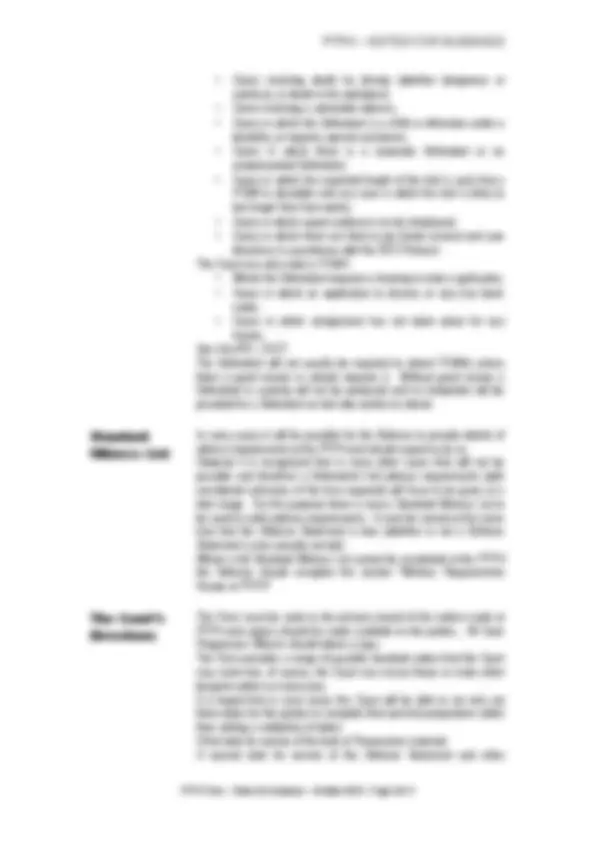




Study with the several resources on Docsity

Earn points by helping other students or get them with a premium plan


Prepare for your exams
Study with the several resources on Docsity

Earn points to download
Earn points by helping other students or get them with a premium plan
Community
Ask the community for help and clear up your study doubts
Discover the best universities in your country according to Docsity users
Free resources
Download our free guides on studying techniques, anxiety management strategies, and thesis advice from Docsity tutors
All cases sent to the Crown Court after 5th January 2016 will be sent to a Plea and Trial Preparation Hearing. This Introduction and Guidance note has been ...
Typology: Study notes
1 / 4

This page cannot be seen from the preview
Don't miss anything!



Why the Change? There has been a wide perception that Preliminary Hearings in cases where Not Guilty pleas are expected have been held too early in the process for the Court to give more than perfunctory orders and that Plea and Case Management Hearings are either unnecessary or not held at a time when active case management could be most effective. The result has been multiple additional hearings and the development of a range of differing local protocols. The new Plea and Trial Preparation Hearing (PTPH) and related procedures will provide a single national consolidated process to be used in all Crown Courts. It builds on the Transforming Summary Justice project in the Magistrates’ Courts. The PTPH:
Defence materials A third date – for necessary responses to the Defence materials and any further evidence The draft orders have been grouped in a way intended to facilitate such an approach. Directions are numbered and a two or three letter code appears alongside the directions for ease of reference. Directions within the form The form includes a number of standard directions. These have been approved by the Lord Chief Justice and will apply unless the Court expressly orders otherwise. Special measures orders that are not contentious may be made at the PTPH without further formality. Administrative Directions Where further directions are required pre-trial and the parties have not succeeded in resolving matters between themselves, the Court will usually expect to give administrative directions without the need for an oral hearing. What if a party fails to comply with the directions? Compliance Courts All participants have a duty to prepare and conduct the case in accordance with the overriding objective; to comply with the Criminal Procedure Rules, Practice Directions and directions of the Court; and at once to inform the Court and all parties of any significant failure (CrimPR1.2) If a party fails to comply with a case management direction then that party may be required to attend the Court to explain the failure. Unless otherwise directed a defendant in custody and other parties to the case will not usually be expected to attend (CrimPD I 3A.23; 26-
What if the Defendant is expected to plead guilty? The form is intended for those who will be pleading Not Guilty. If, after sending, the Defendant decides to plead guilty the Defendant should not wait for the PTPH but instead inform the Court and apply, if it is justified, for the preparation of a Pre-sentence Report identifying the issues such a report is needed to address. The Court will consider that request administratively and may adjourn the case for a Plea and Sentence hearing on a date by which any report that has been ordered will be available. A Court ordering the preparation of a Pre-sentence Report will usually direct a “Fast Delivery Style” report unless good reason for a full report has been identified. Improving the Form Court users who would like to propose adjustments to the form or to suggest additional, or re-phrased, standard orders are encouraged to make suggestions to info@............................